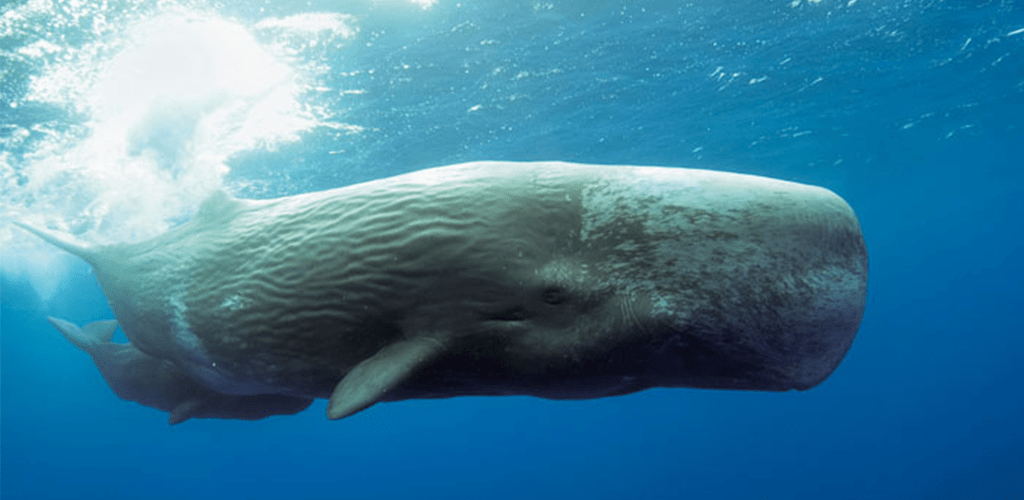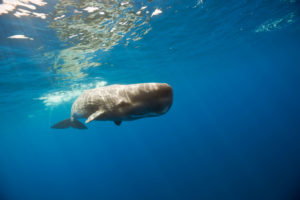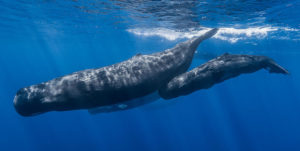We have much more to do and your continued support is needed now more than ever.
7 Facts About Sperm Whales

The National Wildlife Federation is working to permanently protect undisturbed deep ocean habitat off our Atlantic Coast to safeguard species like the endangered sperm whale. To better protect sperm whales, let’s get to know the species a bit.
-

Sperm whale. Photo copyright Reinhard Dirscherl/Alamy Sperm whales got their name because the semi-liquid, waxy substance in their head was first believed to be sperm. Namedspermaceti, scientists think it may help sperm whales dive and rise by changing their buoyancy. Other scientists think it may help them use echolocation to find their prey in the dark depths of the ocean.
- Sperm whales are the largest of the toothed whales. Males can weigh up to 50 tons, which is more than 700 people combined. Their head is about one-third of their body length, and they have the largest brain of any animal on Earth.
- The Endangered Species Act and the Marine Mammal Protection Act protect sperm whales from being harassed or hunted and killed in domestic waters.
- Sperm whales are constantly feeding. They can eat about three percent of their body weight daily, sometimes up to two tons of food!
- Sperm whales can dive to depths of more than 3,000 ft. They mostly dive this deep in search of prey such as squids. Sperm whales can also hold their breaths for up to 90 minutes.
-

Sperm whales. Photo by NOAA As a matriarchal species, sperm whales tend to form groups of adult females and younger whales so the younger ones can learn from the females to become successful adults. The groups, known as pods, usually consist of about 15 to 20 whales. Male whales prefer to swim independently or change groups regularly.
- Deep-sea oil and gas exploration can cause multiple issues for sperm whales such as loss of hearing, water pollution from hydrocarbons, and increased risk of being hit by ocean vessels.
Take ActionHelp sperm whales and other wildlife living in deep ocean habitat today!






















